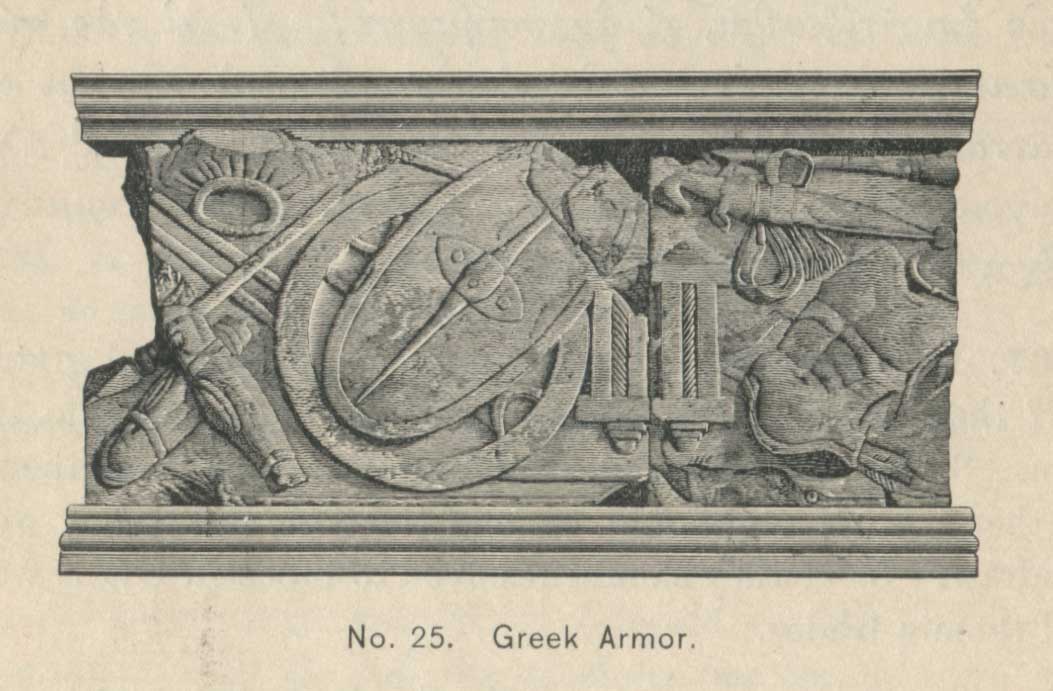THE FIRST GREEK BOOK
BY JOHN WILLIAMS WHITE, PH.D, LL.D., LITT.D.
Professor Of Ancient Greek At Harvard University
This Revision Copyright ©2012 by Shawn Irwin
XXXVIII - Optative Active. Less Vivid Future Conditions
S360. Besides the present, aorist, and perfect, found in the subjunctive (312), the optative has the future and
future perfect. For the distinction of time between the present and the aorist, see 313.
S361. Learn the conjugation of the optative active of λώο
in 765 (λύοιμι), 766 (λύσοιμι), 767 (λύσαιμι),
and 768 (λελύκοιμι).
S362. The optative adds the Mood Suffix; ι (in the third plural ιε)
to the tense stem, as λύο-ι-μι, λύσα-ι-μι. In the perfect the α of the
stem λελύκα is changed to ο. The optative uses the endings of the
secondary tenses (145), but the first person singular active takes μι. The forms
λύσειας, λύσειε, λύσειαν, in the aorist, are irregular, but they are in common use instead of
λύσαις, λύσαι, λύσαιεν. For the accent of λύοι, λύσοι, λύσαι, see 23.
S363. εἰ πράττοι (or πράξειε) τοῦτο, καλῶς ἂν ἔχοι,
if he should do this, it would be well, si hoc faciat, bene sit.
The protasis is here introduced by εἰ if, and has the optative; it states a supposed future
case less vividly than the subjunctive (317). The apodosis has its verb in the optative with the adverb ἅν.
S364. When a supposed future case is stated in a less distinct and vivid form (as in English, if I should go), the protasis
has the optative with εἰ, and the apodosis has the optative with ἄν.
S365. VOCABULARY.
διαβατός, ή, όν, fordable, passable.
δίκαιος, ᾱ, ον, (compare δίκη), just, right.
δικαίως, (compare δίκαιος), adv., justly, rightly.
δοκέω, δόξω, ἔδοξα, δέδογμαι, ἐδόχθην, seem, seem best or good, think;
δοκεῖ, etc., impers., it seems, it seems best.
ἐπισῑτίζομαι (σῑτιδ), ἐπισῑτιούμαι, ἐπεσῑτισάμην, (compare σῖτος),
furnish one-self with provisions, collect or procure supplies, forage.
κλείω, κλείσω, ἔκλεισα, κέκλειμαι and κέκλεισμαι, ἐκλείσθην, shut, close.
πεζῇ, (compare πεζός), adv., on foot.
πεζός, ή, όν, on foot; οἱ πεζδοί, the infantry.
ῥᾳδίως, adv., easily.
σῖτος, ου, ὁ, grain, food, supplies.
S366.
1. εἰ ταῦτα ποιήσειεν, αποχωρήσαιμεν ἅν.
2. εἰ παρέχοιμεν ἀγοράν, ἔχοιτʼ ἂν καὶ σῖτον καὶ οἶνον.
3. εἰ νῑκήσαιμεν, οὐκ ἂν τὴν χώρᾱν δαρπάσειεν.
4. ἀξίους ἂν ἔχοι φίλους, εἰ ἔχοιεν τὰ ὅπλα.
5. εἰ ἀπάγοιμι αὐτοὺς πάλιν εἰς, τὴν Ἑλλάδα, δικαίως ἂν χάριν ἔχοιεν.
6. εἰ δόζειε τοῖς πεζοῖς ἐπὶσῑτίζεσαι, τί ἂν ποιήσαιτε;
7. εἰ τὰς πύλας κλείσειαν, πολιορκήσαιτε ἂν αὐτοὺς καὶ κατὰ γῆν καὶ κατὰ θάλατταν.
8. εἰ ὁ ποταμὸς μὴ πεζῇ διαβατὸς εἰη, πλοῖα συνάγοιεν ἂν.
εἰη, should prove to be.
9. εἰ δὲ μισθὸν πέμψειεν αὐτοῖς, συμμάχους ἂν ἔχοι δικαίους καὶ ἀγαθούς.
S367.
1. If you should do this, we should justly feel grateful.
2. If they should plot evil against him, he would do them harm.
Use the simple dative (861).
3. It would be well, if the general should call the men together.
4. If we should besiege the fort, the enemy would withdraw.
5. If they should resolve to proceed, Cyrus would send them a leader.
i.e., If it should seem best to them.
S368. The Gods send a portent. Advance to the Araxes.
διέβαινον δὲ τὸν ποταμὸν πεζῇ˙ πλοῖα γὰρ οὐκ εἶχον.
οὐπώποτε δὲ οὖτος ὁ ποταμὸς διαβατὸς ἦν πεζῇ εἰ μὴ,
τότε, ἀλλὰ πλοίοις. ἐδόκει δὴ τοῖς στρατηγοῖς καὶ τοῖς
στρατιώταις πᾶσι θεῖον εἶναι.
εἰτεῦθεν ἐξελαύνει διὰ τῆς Συρίᾱς σταθμοὺς ἐννέα παρασάγγᾱς
πεντήκοντα˙ καὶ ἀφικνοῦνται πρὸς τὸν Ἀράξην ποταμόν. ἐνταῦθα
ἦσαν κῶμαι μεσταὶ σίτου καὶ οἴνου. ἐνταῦθα ἔμενοι ἡμέρᾱς τρεῖς
καὶ ἐπεσῑτίζοντο.
ἦν: with force of pluperfect, had been.
πλοίοις: dative of instrument (866).
σίτου καὶ οἴνου: dependent on μεσταί, stored with. Verbal adjectives signifying
fullness take the genitive (855).

See the route on the map.
End Of Chapter
INDEX
Chapter 39
HOME
This Revision Copyright ©2012 by Shawn Irwin
